Use mathematical induction to prove the following.If a is a constant and 0 < a < 1, then an < 1.
What will be an ideal response?
Answers may vary. One possibility:
Sn: If a is a constant and 0 < a < 1, then an < 1.
S1: If a is a constant and 0 < a < 1, then a1 < 1.
Sk: If a is a constant and 0 < a < 1, then ak < 1.
Sk+1: If a is a constant and 0 < a < 1, then ak+1 < 1.
1. Basis step: Since it is given that a < 1, then a1 < 1. Therefore, S1 is true.
2. Induction step: Let k be any natural number. Assume Sk. Deduce Sk+1.
If a is a constant and 0 < a < 1, then ak < 1.
If a is a constant and 0 < a < 1, then ak ? a < 1 ? a. Multiplying by a, a > 0
If a is a constant and 0 < a < 1, then ak+1 < a.
If a is a constant and 0 < a < 1, then ak+1 < a < 1. Given a < 1
If a is a constant and 0 < a < 1, then ak+1 < 1.
You might also like to view...
Referring to the figure below, let E1 = 10 V, E2 = 20 V, R1 = 4.7 Kê, R2 = 1 Kê, and R3 = 3.3 Kê. Solve for I1 and I2.
a. I1 = -3.15 mA I2 = 9.18 mA b. I1 = -3.35 mA I2 = 7.69 mA c. I1 = 4.02 mA I2 = -7.69 mA d. I1 = 2.67 mA I2 = 5.27 mA e. I1 = 3.15 mA I2 = 7.69 mA
For the compound inequality, give the solution set in both interval and graph forms.x > 3 or x ? 5![]()
A. (-?, ?)![]()
B. (3, 5]![]()
C. (-?, 3) ? [5,?)![]()
D. (3, ?)![]()
Graph the system of inequalities, and find the coordinates of the vertices.3y + x ? 0,y + 2x ? 10,y ? 0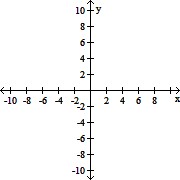
A. 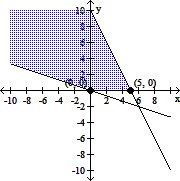
B. 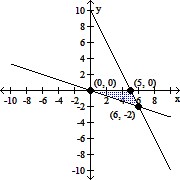
C. 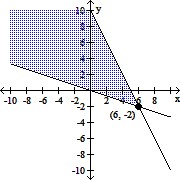
D. 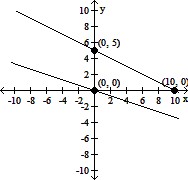
Write as a percent. 0.589
A. 0.0589% B. 58.9% C. 589% D. 0.589%